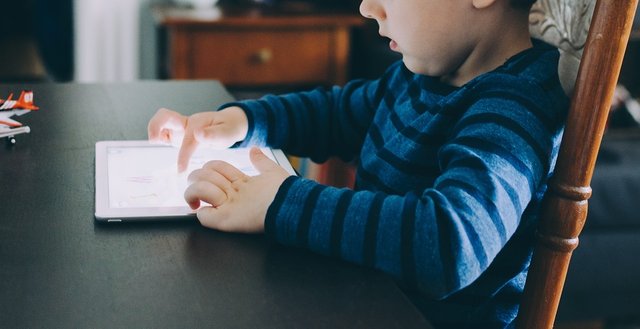iPads Or iBads?
Ever have those moments where you have tons of ideas of what to write about, but when you do actually sit down to put pen to paper, not one of those fabulous brainwaves comes to mind? Well, that was me tonight. Thank goodness I decided to look for inspiration in the @steemiteducation blog where the current “homework” challenge prompted me to write this post.
The Homework Theme:
What modern student trends do you have a hard time understanding or keeping up with and why? As times change, kids get into new trends and new types of toys, music, clothes, etc. become popular. Which new trends have you found confusing or hard to keep up with? Example: Fidget Spinners - https://steemit.com/education/@steemiteducation/day-301-306-meet-ismaelugas-and-check-out-the-new-homework-added
While I am a teacher, this post is written more from my perspective as a parent and I would like to voice my concerns on how Ipads and Tablets are influencing how our children learn, when they learn and who they learn with. These tiny screens have become our kid’s entertainment, their pacifiers and their babysitters - diminishing learning through social interaction. These miniature screens have come to displace all the activities that our kids are now not doing in the real world.

Today, on average, children spend five to six hours a day staring at screens. And they're often on two or more screens at once - for example, watching TV while playing on an iPad. - Read more: http://www.dailymail.co.uk/femail/article-3420064/Why-iPad-far-bigger-threat-children-realises-Ten-years-ago-psychologist-SUE-PALMER-predicted-toxic-effects-social-media-sees-worrying-new-danger.html#ixzz5F1zQFJbC
Technology is important, I get that, but I think as parents we have forgotten that like everything, it should come with boundaries. These boundaries are not being put in place however and we are very quick to whip out the Ipad when our kids are bored, when they are overactive, when they need to sit still, when they need to keep busy…I am sure you get the gist of it.
If the neural pathways that control social and imaginative responses aren't developed in early childhood, it's difficult to revive them later. A whole generation could grow up without the mental ability to create their own fun, devise their own games and enjoy real friendships - all because of endless screen-time. - http://www.dailymail.co.uk/femail/article-3420064/Why-iPad-far-bigger-threat-children-realises-Ten-years-ago-psychologist-SUE-PALMER-predicted-toxic-effects-social-media-sees-worrying-new-danger.html#ixzz5F1zDJrOW
So how do you keep up with this trend? How do you control it and what kind of boundaries should you set so that children don’t grow up depending on screens to cope in the “real” world? I have been toying with this solution and the only idea I can come up with is to allocate screen time to a certain part of the day, and only to that part of the day. So, for instance, an hour before dinner is served kids are allowed to play on their iPad. This way, it is solely used for entertainment and not as an opportunity for parents to console their kids, keep them quiet or babysit them. I am hoping this technique will also allow the kids to appreciate the technology more, in that it is an added treat to our lifestyle, and not what our lives revolve around.
In case you haven’t notice, technology is advancing at a rapid rate and any IT skills that children learn before the age of seven will be null and void by the time they are teenagers. Self-confidence, emotional resilience, creative thinking, social skills and the capacity for focused thought on the other hand, will stand our children in good stead no matter what the future brings.

